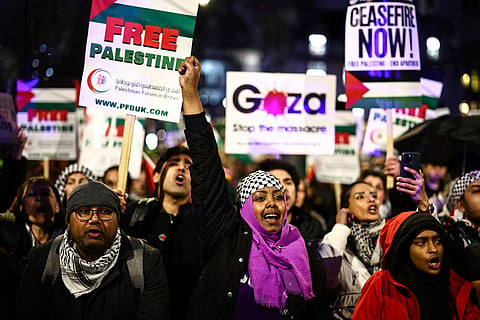Civilians in Gaza in extreme peril while the world watches on: IASC
The humanitarian coordination forum of the UN has demanded Israel an immediate ceasefire to the ongoing onslaught on Palestinians. The forum also demanded the Israeli hostages held by Hamas to be released.
A statement by Principals of the Inter-Agency Standing Committee (IASC) signed by WHO (World Health Organisation) director general Tedros Adhanom Ghebreyesus, among others, points out that tens of thousands of Palestinians – mostly women and children – have been killed and injured in the Gaza Strip following the brutal October 7, 2023 attack by Hamas. More than three quarters of the population have been forced from their homes, many multiple times, and face severe shortages of food, water, sanitation and healthcare – the basic necessities to survive.
The health system continues to be systematically degraded, with catastrophic consequences. As of 19 February, only 12 out of 36 hospitals with inpatient capacity are still functioning, and only partially. There have been more than 370 attacks on health care in Gaza since 7 October, the statement said.
Rafah, the latest destination for well over 1 million displaced, hungry and traumatized people crammed into a small sliver of land, has become another battleground in this brutal conflict. Further escalation of violence in this densely populated area would cause mass casualties. It could also deal a death blow to a humanitarian response that is already on its knees.
There is no safe place in Gaza.
Humanitarian workers, themselves displaced and facing shelling, death, movement restrictions and a breakdown of civil order, continue efforts to deliver to those in need. But faced with so many obstacles – including safety and movement restrictions – they can only do so much.
"No amount of humanitarian response will make up for the months of deprivation that families in Gaza have endured," the statement said, and added, "This is our effort to salvage the humanitarian operation so that we can provide, at the very least, the bare essentials: medicine, drinking water, food, and shelter as temperatures plummet."

